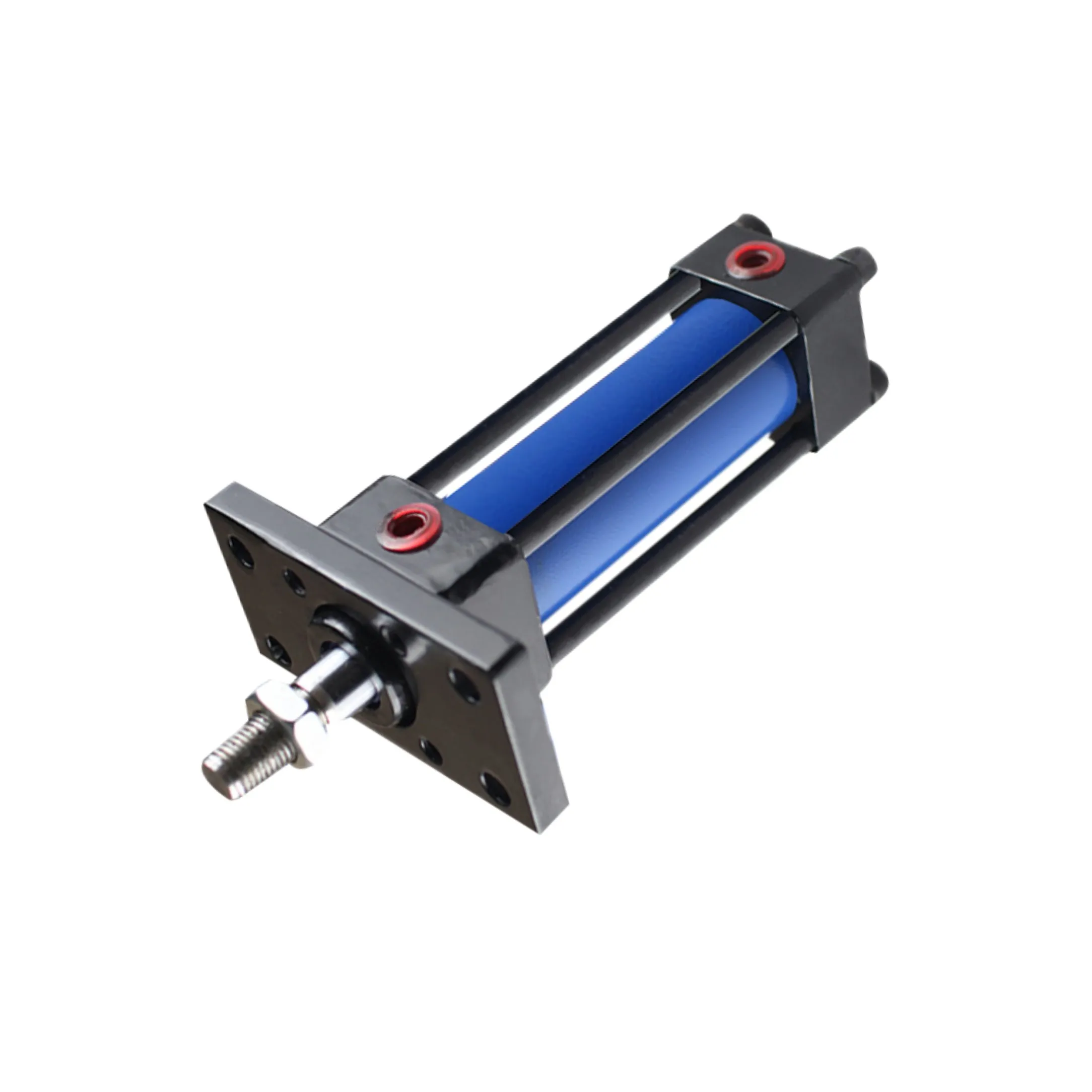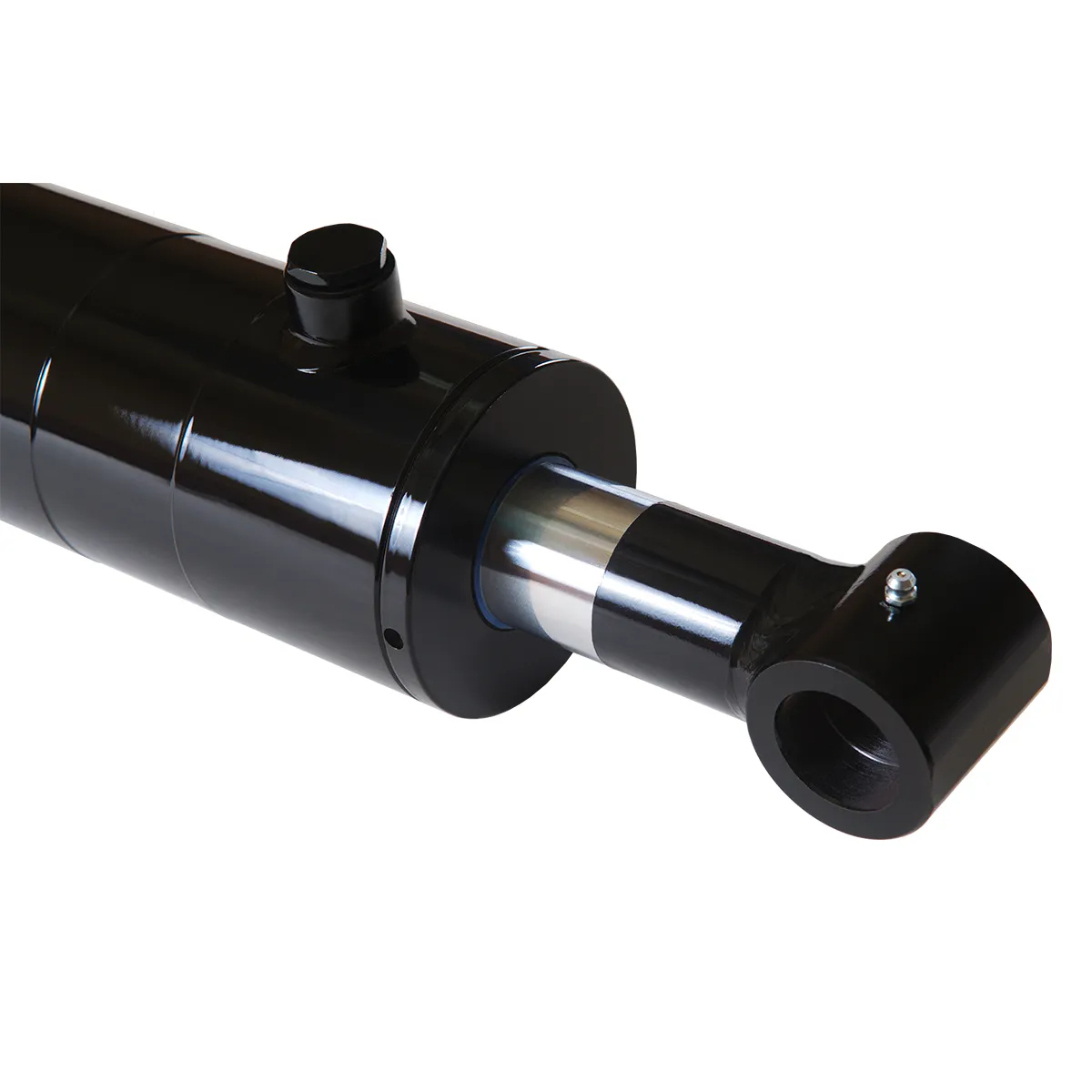
The Versatility of Industrial Hydraulic Cylinders in Conveying Applications
Understanding Hydraulic Cylinders in the Industrial Environment
Hydraulic cylinders play a pivotal role in various industrial processes, serving as essential components in machinery and equipment used for conveying materials. These cylinders are mechanical actuators that provide unidirectional force through a unidirectional stroke, making them ideal for applications that require linear motion.
Key Components and Structure of Hydraulic Cylinders
A hydraulic cylinder typically consists of a cylinder barrel, piston, piston rod, seals, and a hydraulic connection. The cylinder barrel houses the piston, while the piston rod transmits the force generated by the hydraulic fluid. Seals prevent leakage and ensure efficient operation, while the hydraulic connection enables fluid flow.
Principle Overview of Control Cylinder Operation
The operation of a hydraulic cylinder is based on Pascal’s law, which states that pressure exerted at any point in a confined fluid is transmitted undiminished in all directions. When hydraulic fluid is pressurized, it exerts force on the piston, causing linear motion. By controlling the flow of fluid, the speed and direction of the cylinder can be manipulated.
Types of Hydraulic Cylinders in Industrial Applications
Single Acting Cylinders
Single acting cylinders use hydraulic pressure in one direction to extend or retract the piston. These cylinders are commonly used in applications where a load needs to be lifted or pushed in a single direction, such as in dump trucks or snow plows.
Double Acting Cylinders
Double acting cylinders use hydraulic pressure in both directions to extend and retract the piston. These versatile cylinders are suitable for applications that require precise control of speed and force, such as in manufacturing equipment or hydraulic presses.
Telescopic Cylinders
Telescopic cylinders consist of multiple nested stages that extend and retract to provide a long stroke length in a compact design. These cylinders are used in applications where space is limited, such as in dump trailers or aerial platforms.
Differential Cylinders
Differential cylinders feature two pistons of different diameters, allowing for a higher force output with a smaller bore size. These cylinders are ideal for applications that require high force in a confined space, such as in construction equipment or material handling systems.
Advantages of Industrial Hydraulic Cylinders
1. Precise Control: Hydraulic cylinders offer precise control over speed and force, ensuring accurate positioning of loads.
2. High Power Density: Hydraulic systems can generate high forces relative to their size, making them ideal for heavy-duty applications.
3. Versatility: Hydraulic cylinders can be customized to suit specific requirements, allowing for a wide range of applications.
4. Durability: Hydraulic cylinders are designed to withstand harsh industrial environments, ensuring long-term reliability.
5. Efficiency: Hydraulic systems are energy-efficient, reducing operating costs and environmental impact.
Industrial Sectors Utilizing Hydraulic Cylinders
1. Manufacturing: Hydraulic cylinders are used in assembly lines, metalworking machinery, and robotic systems to facilitate material handling and automation processes.
2. Construction: Hydraulic cylinders power heavy equipment like excavators, cranes, and bulldozers for lifting, pushing, and digging operations.
3. Mining: Hydraulic cylinders are integral to mining equipment for drilling, crushing, and transporting materials in challenging underground environments.
4. Agriculture: Hydraulic cylinders are employed in farm machinery like tractors, harvesters, and irrigation systems to enhance productivity and efficiency.
5. Transportation: Hydraulic cylinders are utilized in vehicles, aircraft, and ships for steering, braking, and suspension systems to ensure safe and reliable operation.
Selecting the Right Industrial Hydraulic Cylinder
When choosing a hydraulic cylinder for a specific application, factors such as load capacity, stroke length, bore size, and operating conditions must be carefully considered. Matching the performance of the cylinder to the requirements of the industrial task is crucial for optimal efficiency and longevity.
Maintenance and Care of Hydraulic Cylinders
Regular maintenance is essential to ensure the proper functioning of hydraulic cylinders and extend their service life. Inspection, lubrication, and cleaning are key practices that help prevent issues and optimize performance.
Industrial Hydraulic Cylinder Installation Guide

Proper installation of hydraulic cylinders is critical to their performance and safety. Following manufacturer guidelines, ensuring correct alignment, and using appropriate mounting hardware are essential steps for successful installation.
Maintenance Tasks for Hydraulic Cylinders
1. Cleaning: Remove dirt, debris, and contaminants from the cylinder to prevent damage and maintain smooth operation.
2. Lubrication: Apply appropriate lubricants to seals, pistons, and rods to reduce friction and enhance sealing properties.
3. Wear Checking: Inspect components for signs of wear, corrosion, or leakage, and replace or repair as needed to avoid malfunctions.
Fault Diagnosis and Common Problems
Hydraulic cylinders may experience issues like leaks, seal failure, piston rod damage, or fluid contamination, which can impact performance. By conducting thorough diagnostics and identifying root causes, problems can be resolved effectively to ensure optimal functioning.
Preventive Measures for Hydraulic Cylinder Optimization
To minimize potential problems and enhance the performance of industrial hydraulic cylinders, implementing preventive measures like regular inspections, proper maintenance, and staff training can help mitigate risks and improve overall efficiency.
How to Choose the Right Industrial Hydraulic Cylinder
When selecting an industrial hydraulic cylinder, factors such as application requirements, load capacity, operating conditions, and customization options should be considered to ensure compatibility and optimal performance for the intended task.
Long-Tail SEO Articles on Industrial Hydraulic Cylinders
1. “Enhancing Efficiency with Customized Hydraulic Cylinder Solutions”: Explore how tailored hydraulic cylinders can optimize performance in diverse industrial applications.
2. “Maximizing Productivity Through Hydraulic Cylinder Innovation”: Discover the latest trends and technologies shaping the future of hydraulic cylinder design and functionality.
3. “Sustainability and Performance: The Role of Hydraulic Cylinders in Eco-Friendly Operations”: Learn how eco-conscious practices and hydraulic systems can coexist to promote environmental stewardship.
Company Spotlight: Leading Hydraulic Cylinder Manufacturer
Our company is a renowned hydraulic cylinder replacement manufacturer with a comprehensive product line catering to various industrial needs. As a top supplier in the domestic and international markets, we prioritize quality, innovation, and customer satisfaction in all our offerings.
With professional expertise, international certifications, custom services, advanced production facilities, and responsive after-sales support, our company is committed to delivering superior hydraulic solutions that meet the demands of modern industries.
Author: lyl
